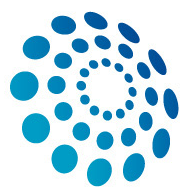ABOUT THE CENTRE
Highlights
- Experience since 2012
- High-quality, cost-effective healthcare
- 500+ patients annually
- ORPHA codes in clinical practice
- Standardized management guidelines
- Multidisciplinary team for individualized long term care
- Transition to adult services
- Raising awareness of the impact of rare diseases
- Rare disease community
Research, clinical trials & innovation
- International research projects and clinical trials
- Patient registries and data bases for rare diseases
- Innovative therapies and better access to orphan drugs
- Shared experience and expertise via 6 European Reference Networks for Rare Diseases
- Coordination of activities and collaboration with the corresponding expert workgroups in European Reference Networks for Rare Diseases
- Virtual consultation services to physicians throughout Europe
1 in 2000 people have a rare disease or condition. In other words, rare diseases may affect 30 million European Union citizens. 75% of these diseases affect children and adolescents.
Our MISSION is to create a rare disease community. We are promoting an IDEA that society, health care providers, patients and their families should work together for better future for every person living with rare disease.
Dedicated team delivers multidisciplinary care – oncology, haematology, neurology, nephrology, rheumatology, neonatal wards, transplantation services, surgery, general paediatrics – all working hand in hand.
Children‘s Hospital is a proud participant of 6 European Reference Networks for rare diseases:
- MetabERN (metabolic diseases)
- ERKNet (rare kidney diseases)
- eUROGEN (rare anomalies for urogenital system)
- PaedCan (paediatric cancers)
- TRANSCHILD (transplantation in child)
- EuroBloodNet (rare hematologic diseases)
We are OPEN to new OPPORTUNITIES and always willing to SHARE our EXPERIENCE!
Coordinating Centre for Children’s Rare Diseases was established in Children‘s Hospital, Affiliate of Vilnius University Hospital Santaros Klinikos on September 4, 2012.
Coordinating Centre for Children’s Rare Diseases aims are to improve, organise and provide medical, psychological and other needed support for children with rare diseases; to promote and support specialists training by gathering scientific knowledge and raising awareness of rare diseases.
The goal of the centre is to help children with rare diseases to:
- Get diagnosed quickly and accurately.
- Receive appropriate and affordable treatmet.
- Receive personalised and optimal care.
In achieving these goals, the centre cooperates with various specialists and separate competence centers, where patients are sent to be examined by skilled specialists.
To aid competence centers, Coordinating Centre for children‘s Rare Diseases:
- Coordinates consultations by various specialists, so they could examine the patient on the same visit, organises consultations with many specialists.
- Attemps to improve accessibility of expensive treatment, medical devices and tests.
- Organises preparation of diagnostic and treatment recommendations of rare diseases and educational materials, promotes the use of new diagnostic and treatment methods for rare diseases.
- Coordinates and organises teaching of patients with rare diseases and their relatives
- Cooperates with national and international institutions, rare diseases expert centres, patient organisations.
- Cooperates with Ministry of Health of the Republic of Lithuania in preparing the legal base related to rare diseases.
- Helps in transfering the patients from children to adult center after they reach adulthood.
- Coordinates work with European Reference Networks.
Frequently, a lot of time passes from disease suspicion to diagnosis and appropriate treatment; patients and their relatives are consulted by many physicians, many tests are performed and many diagnoses are set. Specialists at Coordinating Centre for Children‘s Rare Diseases are working to make rare diseases identifiable to save time and effort of both patients and physicians.
STRUCTURE
Coordinating Centre for Children’s Rare Diseases is a part of the Joint Competence and Biomedical Research Centre.
COMPETENCE CENTRES
There are 17 competence centres established under Coordinating Centre for Chilren‘s Rare Diseases.
The main aim of competence centres is to provide best possible healthcare services for chilren with rare diseases and to become leaders among other national and regional competence centres in their respective diseases.
- Lipidology competence centre (adults and children)

- Lysosomal storage diseases competence centre (adults and children)
- Rare allergic, respiratory tract and skin diseases competence centre (children)
- Pediatric onco-hematology and surgical oncology competence centre

- Haemophilia and clotting disorders competence centre (adults and children)

- Rare bone diseases competence centre (adults and children)
- Rare kidney and congenital urogenital defects competence centre

- Complex disorders and rare urogenital diseases competence centre

- Primary and secondary immunodeficiencies competence centre (children)
- Growth and sexual maturation disorders competence centre (children)
- Congenital developmental disorders competence centre (children)
- Pediatric epilepsies and sleep disorders competence centre
- Pediatric neuromuscular diseases competence centre
- Rare pediatric liver diseases and parenteral and enteral nutrition competence centre
- Rare pediatric rheumatic and autoinflammatory diseases competence centre
- Pediatric HIV and other rare infectious diseases competence centre
- Cystic fibrosis competence centre
![]() – European Reference Network
– European Reference Network
2018 09 14


